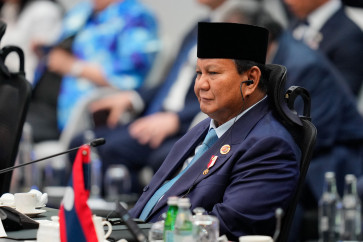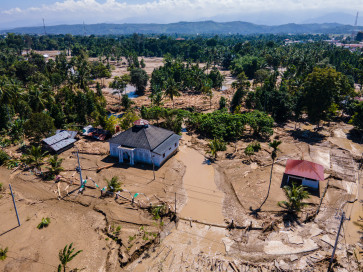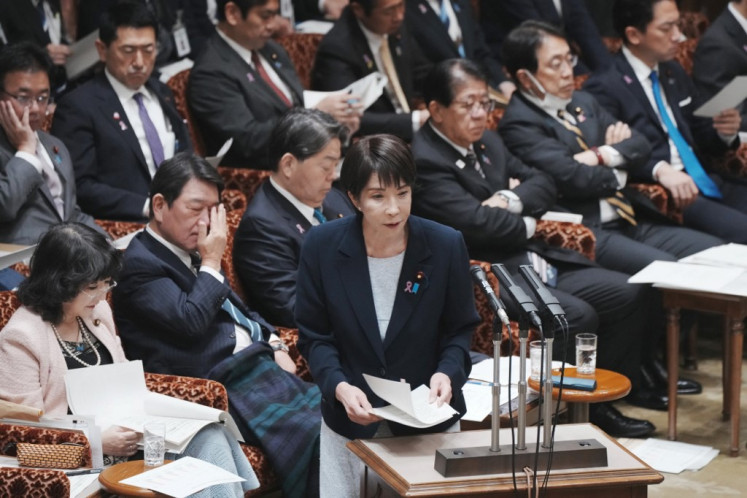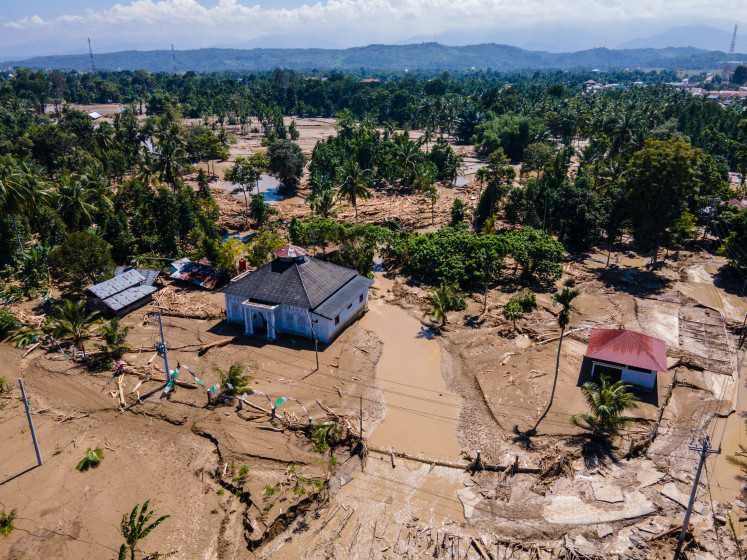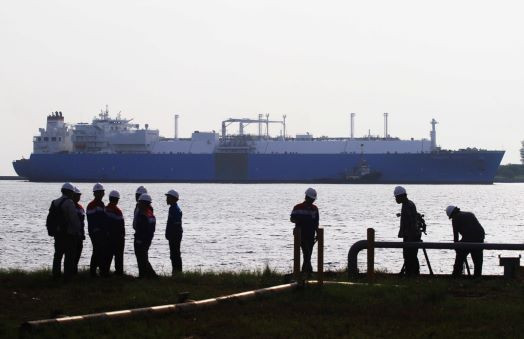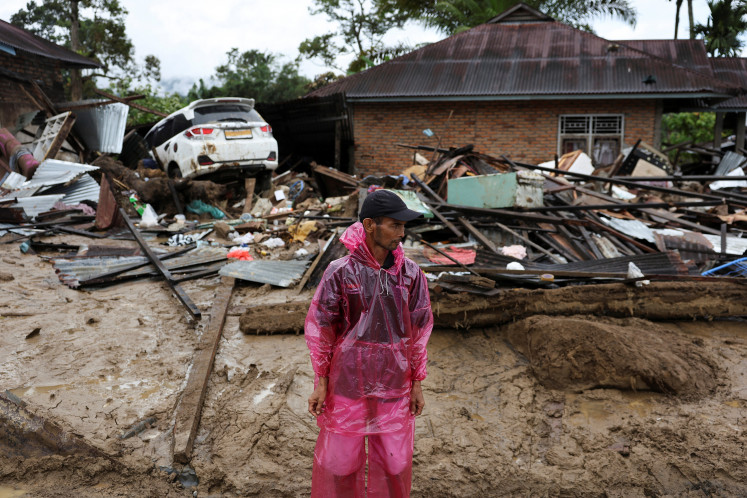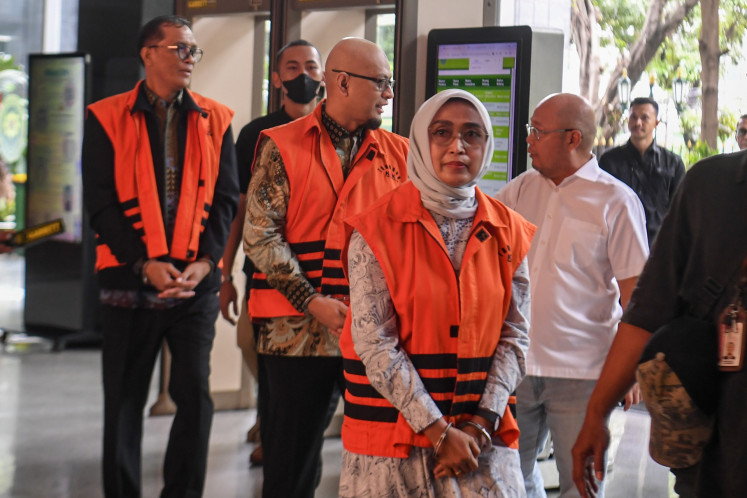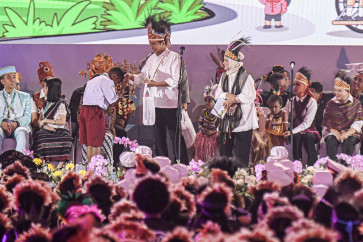Popular Reads
Top Results
Can't find what you're looking for?
View all search resultsPopular Reads
Top Results
Can't find what you're looking for?
View all search resultsEnsuring the recovery of child victims of trafficking
We need to do more to help facilitate the recovery of trafficking victims, especially children, including by setting up ISCs in regions with trafficking hot spots, stipulating recovery-focused funding via the DBK and using our vote in November to make sure we elect regional leaders who are committed to combating people trafficking.
Change text size
Gift Premium Articles
to Anyone
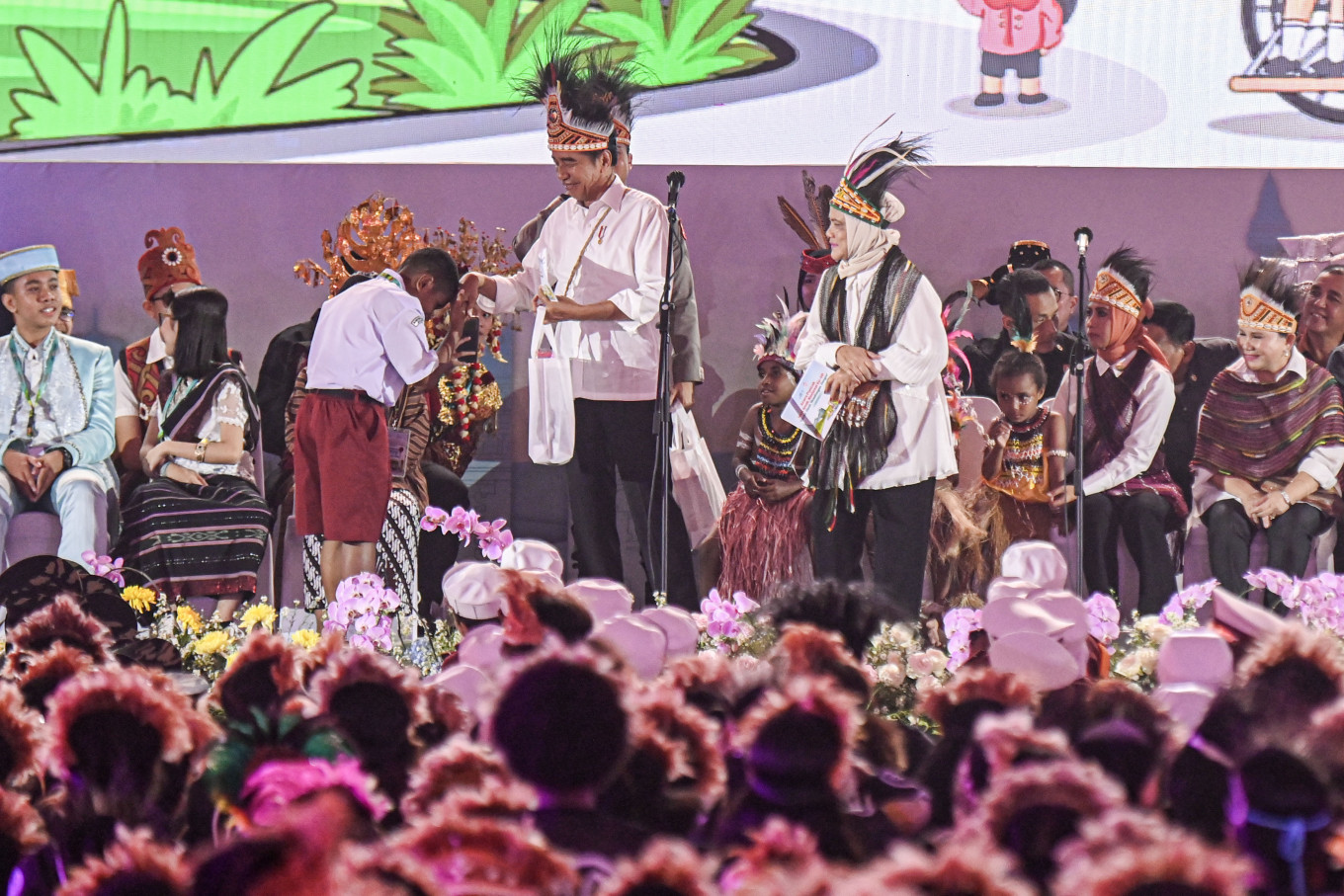 President Joko “Jokowi” Widodo (center left), accompanied by First Lady Iriana Widodo (center right), presents an elementary school student with a gift on July 23, 2024, during an event to commemorate the 40th National Children’s Day at Istora Papua Bangkit in Jayapura, Papua. (Antara/Muhammad Adimaja)
President Joko “Jokowi” Widodo (center left), accompanied by First Lady Iriana Widodo (center right), presents an elementary school student with a gift on July 23, 2024, during an event to commemorate the 40th National Children’s Day at Istora Papua Bangkit in Jayapura, Papua. (Antara/Muhammad Adimaja)
L
imited resources and uneven formation of implementing institutions are hampering the recovery of child victims of trafficking. It would be useful to hold discourse to find an appropriate solution following National Children's Day and the World Day against Trafficking in Persons, marked annually on July 23 and 30, respectively.
The Witness and Victim Protection Agency (LPSK) found that around 45 percent of human trafficking victims in 2023 were women. The various methods used to traffic people between regions and countries included sexual exploitation, mail-order brides, migrant workers and fishing boat crews, with girls comprising the majority of victims trafficked using the first two methods.
The Women’s Empowerment and Child Protection Ministry recorded at least 1,581 Indonesians, mostly women and children, were victims of human trafficking in 2020-2022.
A 2023 study by the International Organization for Migration (IOM) and Harvard University reported that more than 50 percent of children trafficked worldwide had been recruited by family and friends. Boys (43 percent) were trafficked for forced labor in agriculture and begging, while girls (21 percent) were trafficked for sexual exploitation, prostitution and sexual slavery.
Indonesia mandates the recovery of trafficking victims in the Constitution and a number of regulations, such as Law No. 21/2007, Law No. 31/2014, Law No. 35/2014, Presidential Decree No. 36/1990, Government Regulation (PP) No. 9/2008 and PP No. 43/2017.
In a country with a civil law system like Indonesia, legal mandates must be implemented by the central government, regional administrations and the community. A civil law system means that all actions of the government and community must be stipulated in written rules.
The various regulations mentioned above contain at least two key mandates: one is an obligation to restore child victims of trafficking, and the other is to designate the implementing agency.



